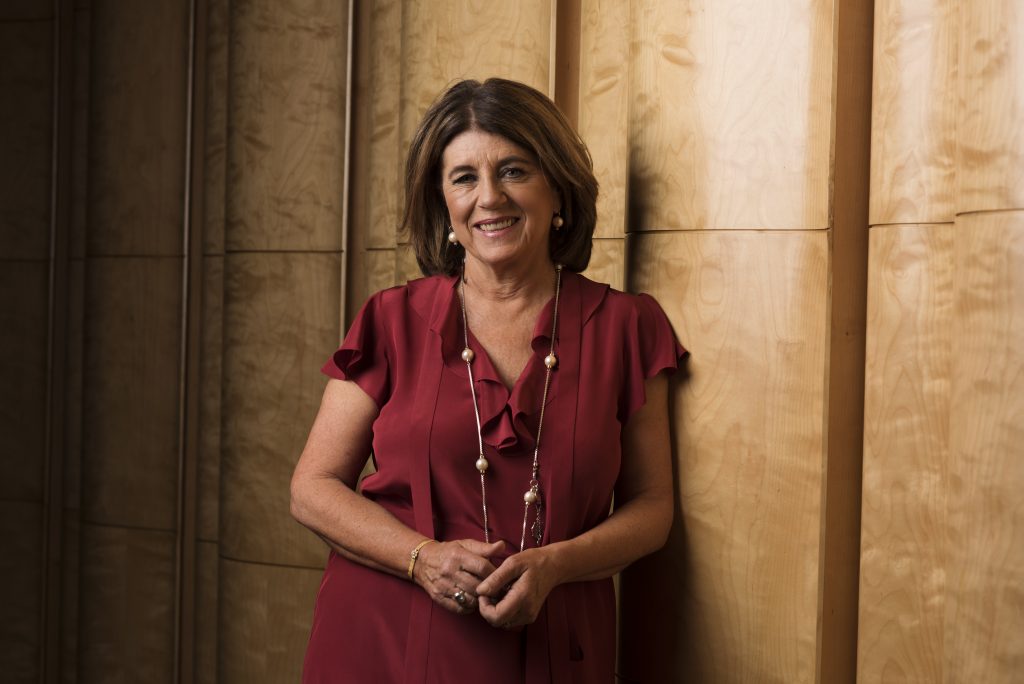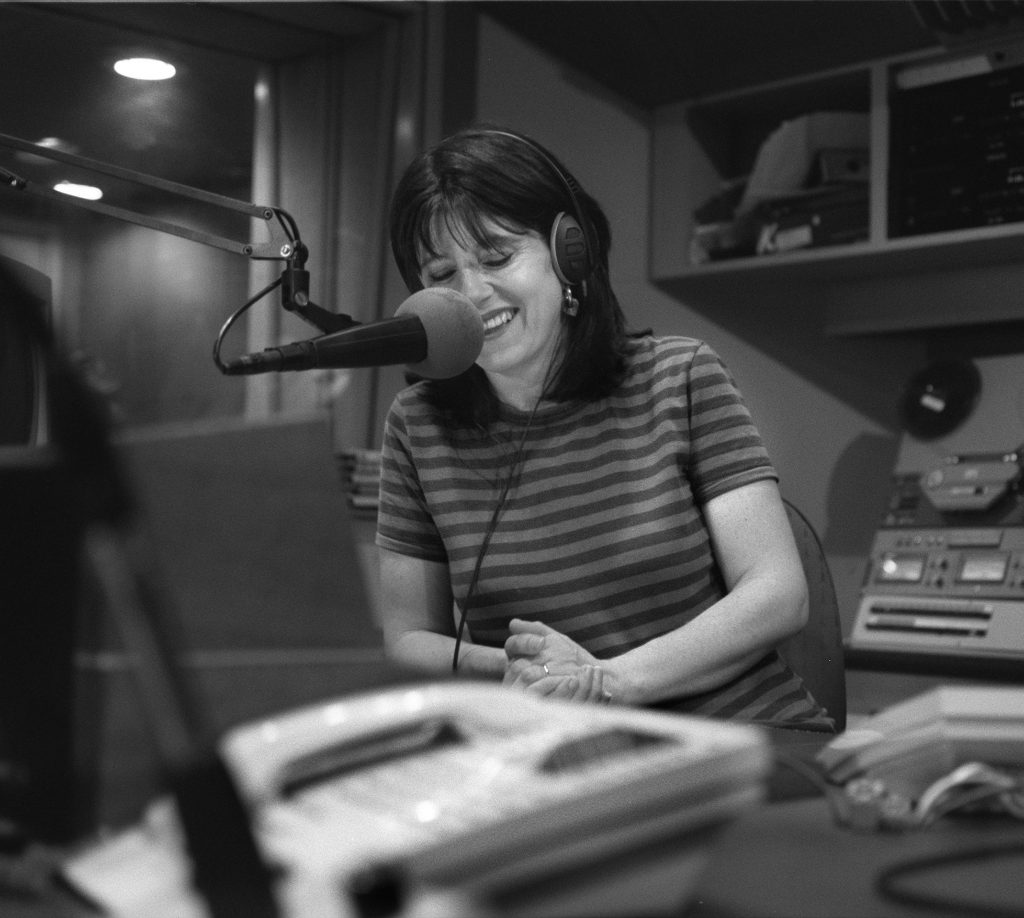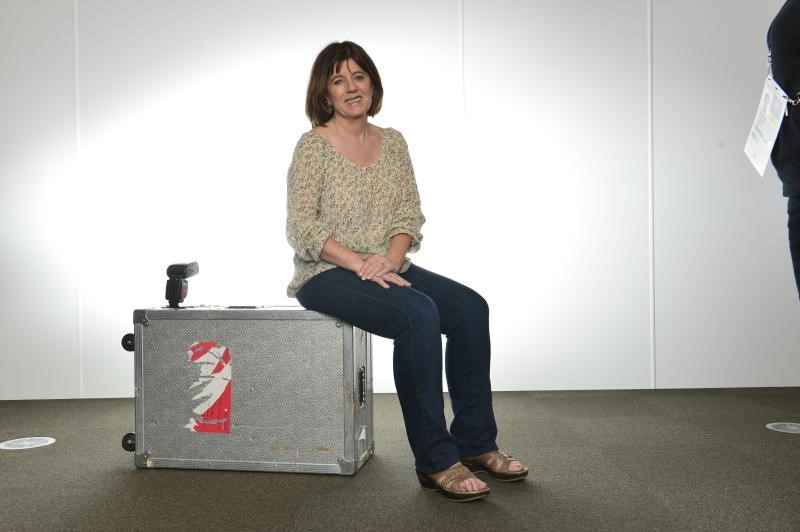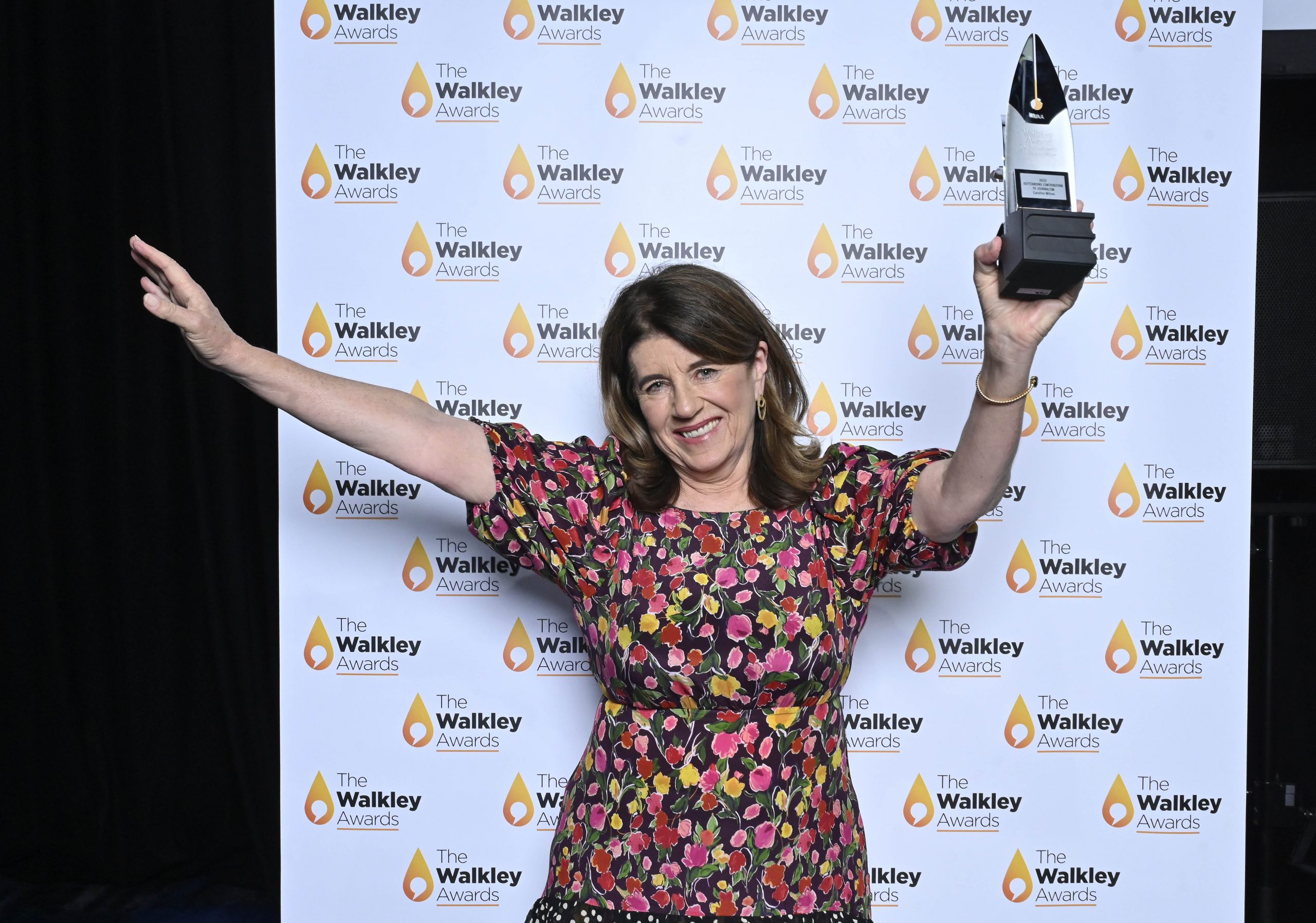
Fairfax Sports columnist Caroline Wilson, photographed in Sydney before giving the annual Andrew Olle lecture. Photographed Thursday 1st November 2018. Photograph by James Brickwood.
Caroline Wilson, the first woman to cover Australian Rules football full time, says the fact that she was often the “first”, or “only” woman in an otherwise male-dominated area of journalism didn’t affect her until she was appointed chief football writer for The Age.
“It was only then that I became marginalised,” Wilson says. “The fact that I could understand a footy game and write about it in a straightforward way suddenly became something extraordinary, which was ridiculous because 40 per cent of the audience at a footy match are women.”
Wilson had no intention of changing how she wrote about the game. “I’ve always had strong opinions, and I’m not afraid to voice them,” she says. “I wrote some hard-hitting articles and got some pretty sexist pushback, but I certainly wasn’t going to let that stop me from writing the stories the industry didn’t want me to write.”
From 1999 to 2017, when Wilson stepped down from her position at The Age, those investigations included breaking the story of Carlton’s systemic salary cap cheating and covering the Essendon Football drugs scandal (for which she won a Walkley Award). Most important were her continuing revelations of systematic racism within the AFL, her support for players suffering from mental health issues, and her advocacy for women at all levels of the game.

Wilson; 971226; pic by Tina Haynes; Metro; Pic shows; Caroline Wilson at 3aw on Boxing day
Despite the love of AFL being in her blood – her father was President of Richmond – Wilson had ambitions to be a film and script writer, but as she neared the end of her journalism cadetship at the now defunct Melbourne Herald, the newspaper decided to “experiment” by having a woman in the sports department.
That decision led to a career that has included covering multiple Olympic and Commonwealth Games, being a panellist on the ABC’s Offsiders program for 18 years and on Channel Nine’s Footy Classified for 17 years. Her numerous awards over the decades include her Lifetime Achievement Award from the Australian Sports Commission in 2010, the Graham Perkin Australian Journalist of the Year Award in 2013, and the Melbourne Press Club’s Lifetime Achievement Award in 2021.
Wilson has campaigned since the 1990s for Tasmania to enter the AFL. “The AFL allowed Tasmania to disintegrate into a wasteland,” she says, “but my belief is that ‘if you build it they will come’, and it will help address every aspect of the social issues Tasmania is currently facing.”
For Wilson sports and politics, and the politics of sport, have been embedded in her family life for decades. She has been married to Brendan Donohoe, Channel Seven’s State Political Reporter for 31 years, and the couple have three children, Rose, Ned and Clementine, and one granddaughter, Sunday.
“Somehow the kids weren’t put off by the idea of a career in media,” she says. “Rose is an editor, copywriter and content director, Ned is a filmmaker, and Clementine has had three jobs – all in communications.”
Of all of her professional achievements, Wilson remains proudest of her work against racial vilification and her stories having led to a better understanding of men’s mental health issues. “If I’ve had any influence at all, I hope that what happened to Adam Goodes in 2012 and 2013 will never occur again,” she says. “When my story on Ken Hunter’s nervous breakdown – which saw him institutionalised – was published ten years after the event, it was a really big thing,” she says. “If I’m proud of anything, it’s normalising the mental health challenges sportspeople face. TheAFL is reflective of our country and it’s vital the game remains a leader.””
By Candida Baker



